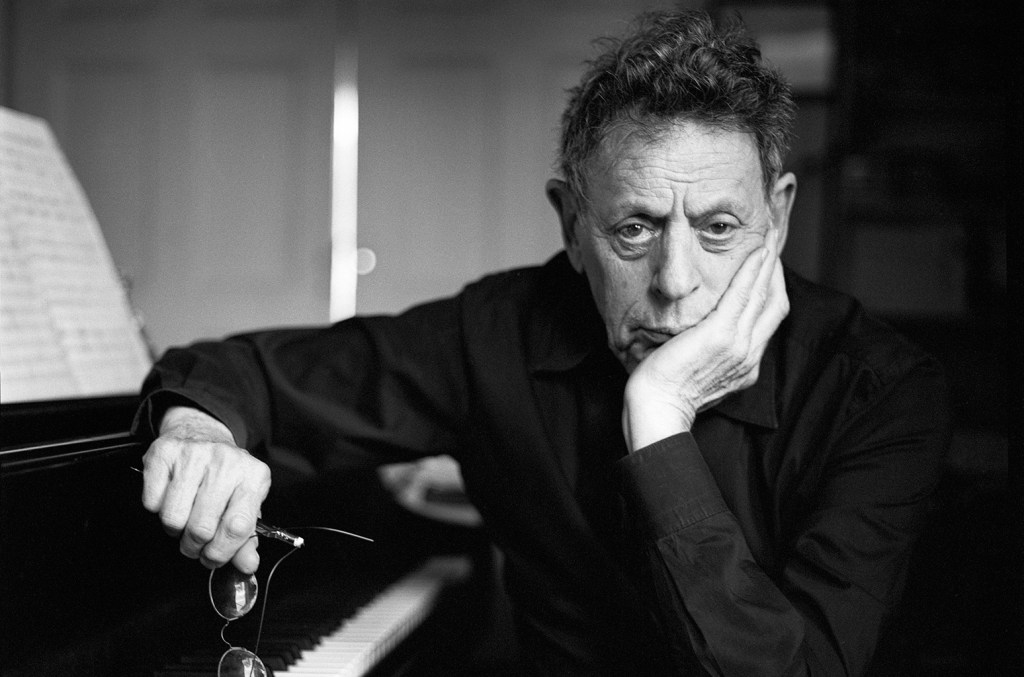## Prepare for a Symphony of Success: Glass and Nyman to Receive Lifetime Achievement Honors
Hold onto your controllers, music lovers! The 2025 World Soundtrack Awards are about to get seriously epic. Two titans of the musical world, Philip Glass and Michael Nyman, are set to be honored with Lifetime Achievement Awards, solidifying their places in the pantheon of gaming and cinematic soundtracks.

These aren’t your average composers – Glass, the minimalist maestro known for his hypnotic scores in films like “Koyaanisqatsi” and “The Hours,” and Nyman, the brooding genius behind the eerie soundscapes of “The Piano” and “Gattaca,” have shaped the sonic landscape of our lives. Now, they’re being recognized for their profound influence on the world of game soundtracks.

The Legacy of Minimalism: How Glass and Nyman Have Shaped Contemporary Music

The minimalist movement in music, emerging in the mid-20th century, has had a profound and lasting impact on the soundscape of contemporary music. Two of its most prominent figures, Philip Glass and Michael Nyman, have not only shaped the trajectory of the genre but have also crossed over into mainstream success, influencing film scores, opera, and beyond. Their influence is undeniable, with their works resonating in diverse fields, from experimental music to the world of video games.
Glass, renowned for his hypnotic and repetitive compositions, has crafted a distinctive sonic world characterized by gradual shifts and evolving textures. His groundbreaking operas, such as Einstein on the Beach and Satyagraha, challenged traditional operatic forms and ushered in a new era of experimental musical theatre. Nyman, known for his angular melodies and unconventional orchestrations, has brought a unique minimalist sensibility to film scores, notably in collaborations with director Jane Campion, including the acclaimed The Piano. His work often features a blend of classical instrumentation with contemporary elements, creating a haunting and evocative atmosphere.
Both composers have received numerous accolades for their contributions to music. Glass has been nominated for three Academy Awards for his film scores and has won a Primetime Emmy Award, a BAFTA Award, and a Golden Globe Award. Nyman has garnered three Golden Globe nominations for Best Original Score – Motion Picture and has achieved commercial success with his soundtrack to The Piano, which reached No. 41 on the Billboard 200 chart and went gold.
Minimalism on Stage: The World Soundtrack Awards Concert
The Program: A Celebration of Glass and Nyman’s Works

The upcoming World Soundtrack Awards concert, “Minimalism in Motion: Glass, Nyman and Beyond,” promises to be a remarkable event for music enthusiasts. The program will feature a selection of iconic works by both Philip Glass and Michael Nyman, showcasing the breadth and depth of their minimalist output.
Gamestanza anticipates the performance of renowned pieces such as Glass’s Satyagraha and Einstein on the Beach, along with Nyman’s haunting score from The Piano.
The Brussels Philharmonic: Bringing Minimalist Scores to Life
The concert will be conducted by the esteemed maestro Dirk Brossé, known for his insightful interpretations of contemporary music. The Brussels Philharmonic, a renowned orchestra celebrated for its precision and expressive virtuosity, will bring these minimalist scores to life with their masterful execution.
The Significance of This Concert: A Bridge Between Classical and Film Music
This concert holds particular significance as it bridges the gap between the worlds of classical music and film music. Both Glass and Nyman have made significant contributions to both genres, proving the versatility and enduring power of minimalist aesthetics. The event will serve as a testament to the transformative impact of minimalism on the musical landscape, highlighting its influence on contemporary composers and performers.
Gamestanza: Exploring Minimalist Sounds in Video Games
The influence of minimalism extends far beyond traditional concert halls and film screens. Gamestanza explores the intriguing world of minimalist soundscapes in video games, demonstrating how this musical style has enriched and redefined the gaming experience.
Minimalist Game Soundtracks: Examples and Analysis
Several video games have embraced minimalist soundtracks, creating immersive and atmospheric worlds that resonate with players. Some notable examples include:
- Journey (2012):
Austin Wintory’s score for Journey is a masterpiece of minimalist composition, featuring ethereal melodies and soaring strings that evoke a sense of wonder and loneliness. The music seamlessly blends with the game’s visuals, enhancing the emotional impact of the player’s journey. - Limbo (2010):
The haunting soundtrack of Limbo, composed by Martin Stig Andersen, utilizes sparse instrumentation and eerie sound design to create a deeply unsettling atmosphere. The music’s simplicity and minimalism contribute to the game’s overall sense of dread and mystery. - Minecraft (2011):
The iconic soundtrack of Minecraft, composed by C418, is built upon repetitive melodies and simple harmonies. Despite its simplicity, the music effectively captures the game’s vast and open world, evoking a sense of exploration and discovery.
The Use of Repetition and Texture in Video Game Music
Minimalist game soundtracks often employ repetition and texture to create a sense of depth and immersion. Repetitive melodies can become hypnotic and draw players into the game world, while variations in texture can create shifts in mood and atmosphere.
For example, in Journey, the main theme is repeated throughout the game, but subtle changes in instrumentation and arrangement create a sense of progression and emotional development.
Creating Atmosphere and Immersion Through Minimalism
Minimalism’s ability to evoke powerful emotions with limited means makes it particularly effective in video games. By stripping away unnecessary elements, minimalist soundtracks can create a more focused and immersive experience.
When used effectively, minimalist music can amplify the emotional impact of gameplay, enhancing the player’s connection to the game world and its characters.
Conclusion
The 2025 World Soundtrack Awards are poised to be a monumental occasion, honoring two titans of minimalist music: Philip Glass and Michael Nyman. Their contributions to the world of film scoring are undeniable, weaving intricate, emotionally resonant soundscapes that have defined cinematic experiences for generations. As Billboard highlights, Glass’s iconic scores for films like “Koyaanisqatsi” and “The Hours” have become synonymous with the evocative power of minimalist composition, while Nyman’s work on “The Piano” and “The Cook, the Thief, His Wife & Her Lover” showcases a masterful ability to blend minimalism with a distinctly haunting and dramatic flair.
This recognition isn’t merely a celebration of past achievements; it marks a crucial juncture in the evolution of film music. Glass and Nyman’s influence continues to resonate deeply with contemporary composers, inspiring a new wave of artists who are pushing the boundaries of what’s possible with sound in film. Their awards serve as a testament to the enduring power of minimalism, highlighting its ability to transcend genre and cultural boundaries, weaving its magic through the fabric of storytelling.
As we anticipate the 2025 ceremony, one question lingers: What new sonic landscapes will these masters inspire in the years to come? Their legacy, like their music, promises to be a timeless exploration of the profound emotions that bind us all.